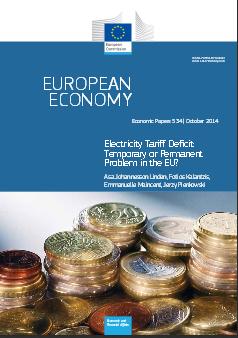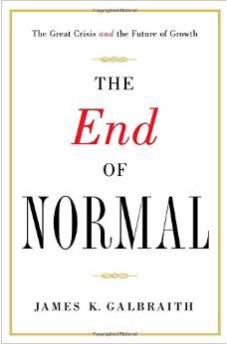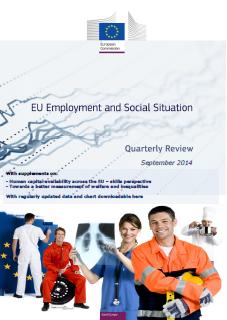Saraceno, F. (2014) “The Lost Consistency of European Policy Makers“, Sparse Thoughts of a Gloomy European Economist Blog, 06 October. Just a quick note on something that went surprisingly unnoticed so far. After Draghi’s speech in Jackson Hole, a new consensus seems to have developed among European policy makers, based on three propositions: Europe suffers from deficient aggregate demand Monetary policy has lost traction Investment is key, both as a countercyclical …Read More
Systemic equilibrium in a Bretton Woods II-type international monetary system: the special roles of reserve issuers and reserve accumulators
Austin, Κ. (2014) “Systemic equilibrium in a Bretton Woods II-type international monetary system: the special roles of reserve issuers and reserve accumulators“, Journal of Post Keynesian Economics, 2014, vol. 36, issue 4, pages 607-634. This article develops a model, based on balance-of-payment identities, of the new international monetary system (Bretton Woods II or BWII). It shows that if some countries engineer current account surpluses by exchange-rate manipulation and foreign-reserve …Read More
Electricity Tariff Deficit: Temporary or Permanent problem in the EU?
Johannesson Linden, Α., Kalantzis, F., Maincent, E. & Pienkowski, J. (2014) “Electricity Tariff Deficit: Temporary or Permanent problem in the EU?“, European Economy. Economic Papers. 534. October. In the recent years electricity tariff deficits emerged in Spain, Portugal, Greece and in some other Member States. Tariff deficits are shortfalls of revenues in the electricity system, which arise when the tariffs for the regulated components of the retail electricity price …Read More
The End of Normal: The Great Crisis and the Future of Growth
Galbraith, J. K., The End of Normal: The Great Crisis and the Future of Growth, Simon and Shuster, New York: September 2014. The years since the Great Crisis of 2008 have seen slow growth, high unemployment, falling home values, chronic deficits, a deepening disaster in Europe—and a stale argument between two false solutions, “austerity” on one side and “stimulus” on the other. Both sides and practically all analyses of …Read More
The German experiment has failed
Mitchell, B. (2014) “The German experiment has failed“, Mainly Macro Blog, 07 October. In the last week, several new data releases have shown that the Eurozone crisis is now consolidating in the core of Europe – France, Italy and … yes, Germany. The latter has forced nonsensical austerity on its trading partners in the monetary union. And, finally, the inevitable has happened. Germany’s factories are now in decline because …Read More
EU Employment and Social Situation – Quarterly Review
European Commission (2014) EU Employment and Social Situation – Quarterly Review, Social Europe, Publications Office of the European Union: September 2014, 06 October. Monitoring of the labour market and the social situation The EU Employment and Social Situation Quarterly Review gives an overview of recent developments in the European labour market and social situation, including short-term changes in GDP and employment growth, in employment and unemployment rates, and in …Read More
Eurostat Regional Yearbook 2014
Kotzeva, M. (Ed.) (2014) Eurostat Regional Yearbook 2014, Eurostat Publications, October. Statistical information is an important tool for understanding and quantifying the impact of political decisions in a specific territory or region. The Eurostat regional yearbook 2014 gives a detailed picture relating to a broad range of statistical topics across the regions of the Member States of the European Union (EU), as well as the regions of EFTA and …Read More
Challenges and New Beginnings: Priorities for the EU’s New Leadership
European Policy Centre (2014) “Challenges and New Beginnings: Priorities for the EU’s New Leadership, Challenge Europe, Issue 22, September. Foreword There has been a lot of attention on the current transition of power taking place in Brussels. For the first time in European Union history, the new President of the European Commission will take up his post after being nominated as ‘Spitzenkandidat’ of the party group which gained the …Read More
Eurozone Asymmetries
Wren-Lewis, S. (2014) “Eurozone Asymmetries“, Mainly Macro Blog, 05 October. Suppose a large Eurozone country – let’s call it France – decided that it needs to substantially increase its minimum wage in order to reduce poverty. The increase is sufficiently large that it leads to a sustained increase in average French wage inflation, which in turn decreases the competitiveness of France relative to the rest of the Eurozone. France …Read More
Why A European Unemployment Insurance Would Help To Make EMU More Sustainable
Dullien, S. (2014) “Why A European Unemployment Insurance Would Help To Make EMU More Sustainable“, Social Europe Journal, 03 October. Since the onset of the euro-crisis, the old debate pertaining to the supra-national stabilisers in the euro-area has gained new relevance. While economic textbooks have long stipulated that countries forming a monetary union need an alternative mechanism for dealing with asymmetric shocks and even the early feasibility studies on …Read More









